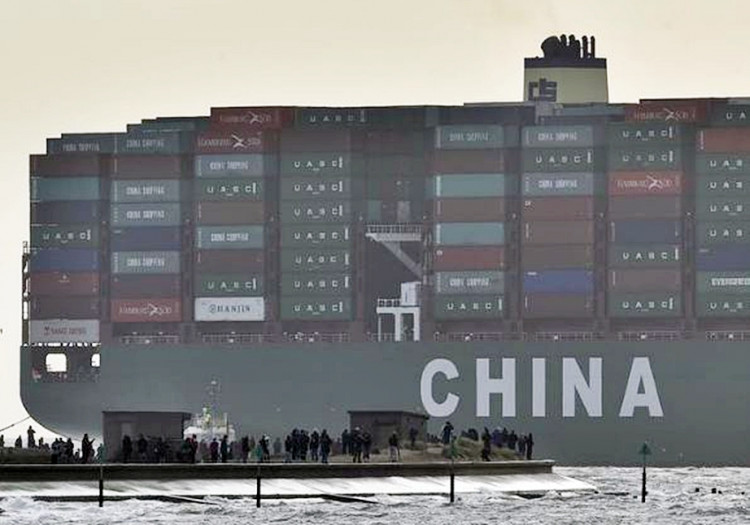So much for trade wars being easy to win.
President Donald Trump now has to explain why his protectionist policies, which he said would slash America's trade deficit with China and the world, has instead seen the U.S. trade deficit skyrocket to a 10-year high of $621 billion in 2018, which is the largest since 2008.
Media outlets and political pundits are having a field day criticizing Trump's protectionist trade policies for backfiring and hurting the U.S. economy, but not those of the countries it was directed against. The utter failure of Trump's America First protectionism to attain its basic aim confirms a lesson from history: protectionism is self-destructive, which is why the world moved away from it in favor of globalization.
The annual U.S. trade deficit for 2018 was almost 19 percent higher compared to the deficit in 2017, said the U.S. Department of Commerce. The total annual U.S. goods trade deficit ballooned to $891 billion in 2018 but the services surplus cut the overall deficit to $621 billion last year.
U.S. exports fell for a third straight month, mainly on account of the strong dollar that made U.S. products more expensive abroad. On the other hand, imports again rose as American consumers continued to patronize foreign-made goods, especially cheaper products from China.
The Commerce Department said the December trade deficit of $59.8 billion was also the largest since October 2008. This shortfall also exceeded economists' estimates for a $57.9 billion shortfall.
A slap to Trump's face is the massive increase in the trade deficit with China. The 2018 trade deficit rose 12 percent to hit a new record at $419 billion despite punishing tariffs imposed on Chinese exports to the U.S.
The U.S. also recorded record imports from 60 countries in 2018, led by China, Mexico, and Germany. Merchandise imports jumped to a record $2.6 trillion last year.
Analysts noted the U.S. trade deficit had deteriorated despite Trump's protectionist trade policies meant to allegedly protect U.S. firms from what Trump claims is unfair foreign competition, especially from China.
More worryingly, some analysts now warn Trump will "up the ante" to distract attention from the deteriorating trade situation. There is a strong likelihood Trump might walk away from the ongoing trade talks with China.
"The chances of a deal with China this month look a bit weaker now, while more trade conflict with Europe seems increasingly likely," said Chris Beauchamp, chief market analyst at online trading firm IG.
"The assumption now is that trade wars will intensify and that growth will suffer as a result."






